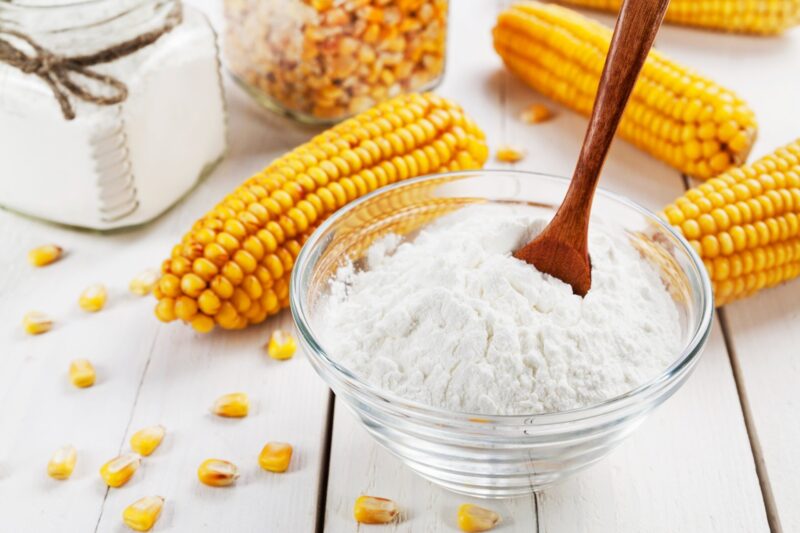I’m here to shed some light on the vegan status of cornstarch. As a commonly used thickening agent, cornstarch is a staple in many kitchens. However, its vegan-friendliness may not be so clear-cut. Let’s delve into the details and explore whether cornstarch is truly vegan or not.
Key Takeaways:
- Cornstarch is derived from the endosperm of corn kernels.
- The use of bone char in the refining process of sugar, which is often used in cornstarch production, may pose concerns for vegans.
- There are vegan-friendly alternatives to cornstarch, such as all-purpose flour, rice flour, arrowroot powder, potato starch, and tapioca starch.
- Cornstarch can be used creatively in various recipes, including as an egg substitute in baking or as a coating for crispy vegan “breading.”
- When it comes to Jolly Ranchers, their vegan status varies depending on the specific product and the presence of ingredients like sugar and palm oil.
What Is Cornstarch?
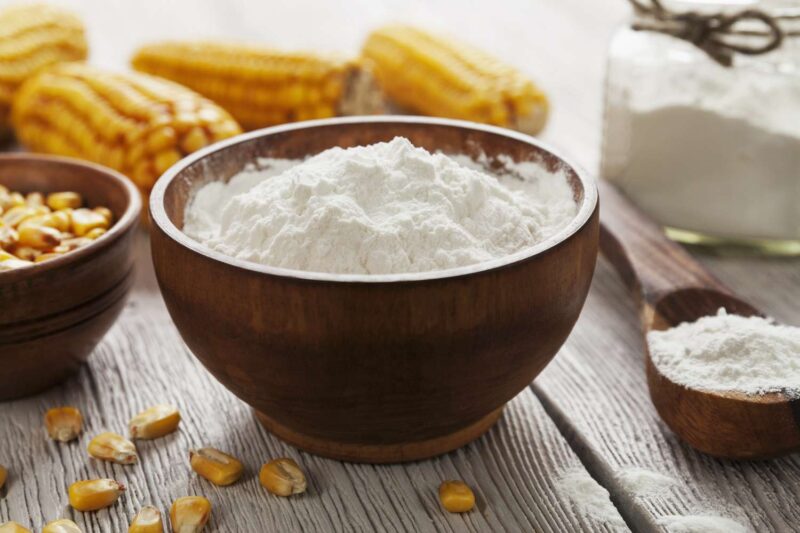
Cornstarch is a plant-based ingredient commonly used as a thickening agent in cooking and baking. It is derived from the endosperm of corn kernels and is widely available in supermarkets and grocery stores. This fine, white powder has a smooth texture and a neutral taste, making it a versatile ingredient in various recipes.
As a thickening agent, cornstarch works by absorbing moisture and swelling when heated, resulting in a thicker consistency. It is often used in sauces, soups, gravies, and desserts to achieve a desired texture. Vegans can generally use cornstarch in their cooking and baking, as it does not contain any obvious animal-derived ingredients.
Benefits of Cornstarch for Vegans
One of the advantages of using cornstarch as a thickener is its ability to create a smooth and glossy texture in dishes. Unlike other thickeners, such as flour or arrowroot, cornstarch has a lower gelatinization temperature, meaning it thickens quickly and efficiently. This makes it ideal for gravies, custards, and pie fillings.
Another benefit of cornstarch is its neutral flavor. It does not alter the taste of the dishes it is used in, allowing the flavors of other ingredients to shine through. This makes it a popular choice for recipes where you want to maintain the original taste profile, such as fruit pies or delicate sauces.
| Benefits of Cornstarch for Vegans |
|---|
| Creates a smooth and glossy texture in dishes |
| Thickens quickly and efficiently due to its lower gelatinization temperature |
| Does not alter the taste of the dishes it is used in |
| Can be used as a vegan-friendly alternative to other thickeners |
It’s important to note that while cornstarch is vegan-friendly, there may be potential concerns surrounding its production process. Some cornstarch manufacturers may use bone char as a decolorizing agent in the refining process of sugar, which can be used in cornstarch production. Vegans who are particularly strict may choose to opt for alternative thickeners to avoid any potential issues.
In the next section, we will explore some vegan-friendly alternatives to cornstarch that you can use in your cooking and baking.
Vegan-Friendly Alternatives to Cornstarch
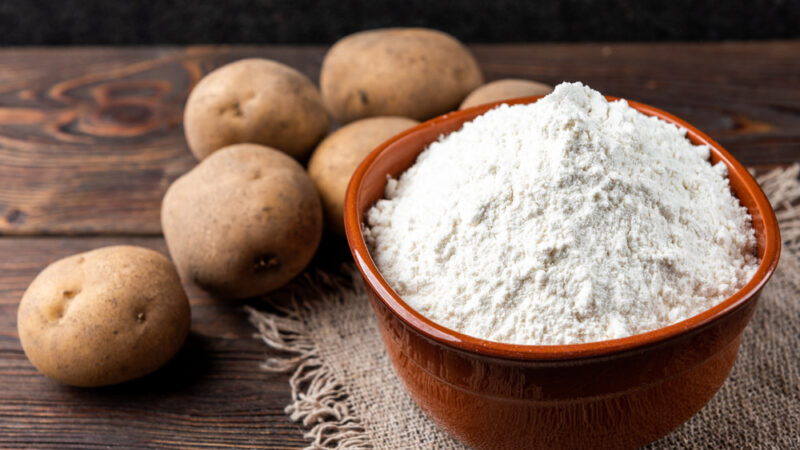
If you’re looking for vegan alternatives to cornstarch, there are several options to consider. All-purpose flour, rice flour, arrowroot powder, potato starch, and tapioca starch can be used as substitutes in recipes that call for cornstarch. These alternatives have varying thickening powers and may require adjustments in the amount used.
Comparative Analysis: Vegan Alternatives to Cornstarch
To help you choose the best alternative for your vegan cooking needs, here is a comparison of the different options:
| Alternative | Thickening Power | Recommended Usage |
|---|---|---|
| All-Purpose Flour | Medium | Best for gravies, sauces, and soups |
| Rice Flour | Low to medium | Ideal for light sauces and desserts |
| Arrowroot Powder | High | Great for clear sauces and fruit fillings |
| Potato Starch | High | Perfect for creamy sauces, puddings, and pie fillings |
| Tapioca Starch | Very high | Excellent for thickening fruit pies and stews |
Remember, when using these alternatives, start with a small amount and gradually add more until the desired consistency is achieved. It’s also a good idea to follow recipe guidelines and adjust accordingly based on the specific alternative you choose.
Experimenting with these vegan-friendly alternatives to cornstarch can open up a world of delicious possibilities in your plant-based cooking. Whether you’re making sauces, soups, or desserts, you can achieve the desired texture and thickness while maintaining your vegan lifestyle.
Creative Uses for Cornstarch
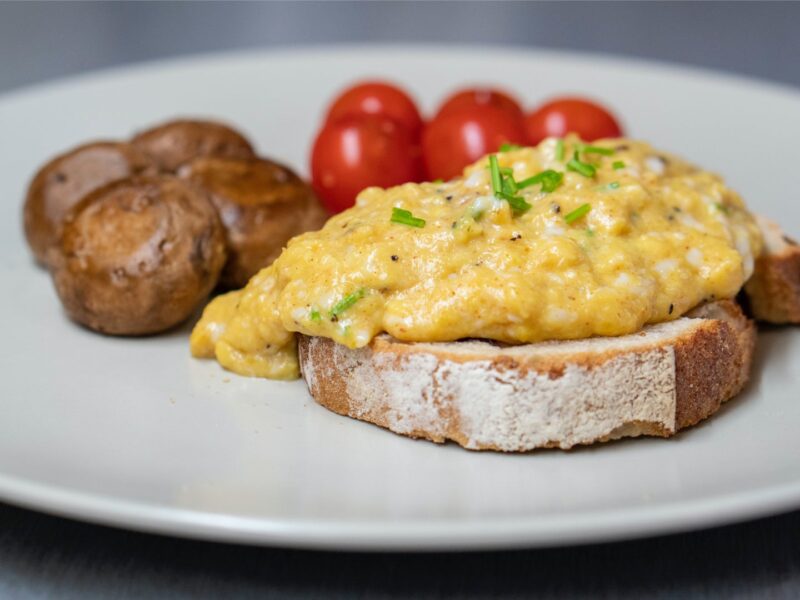
Cornstarch is not just limited to its traditional role as a thickening agent in recipes. This versatile ingredient can be used in various creative ways in vegan cooking. Here are some creative uses for cornstarch that can add a unique touch to your dishes:
- Egg Substitute: Cornstarch can be used as an egg replacement in baking. Simply mix 1 tablespoon of cornstarch with 3 tablespoons of warm water to replace one egg in your recipe.
- Fluffy Omelets: For a fluffy omelet, add a teaspoon of cornstarch to your egg mixture before whisking. This will give your omelet a light and airy texture.
- Cake Flour Substitute: If you don’t have cake flour on hand, you can make a substitute by combining 1 cup of all-purpose flour with 2 tablespoons of cornstarch. Use this mixture in your cake recipes for a tender and moist result.
- Crispy Coating: Cornstarch can be used as a coating for crispy vegan “breading” on tofu, vegetables, or even mock meats. Simply coat your desired ingredient in a mixture of cornstarch, spices, and plant-based milk before frying or baking.
In addition to these culinary uses, cornstarch also has unconventional applications. It can be used to reduce friction on ropes or shoelaces, acting as a natural lubricant. Whether you’re experimenting with vegan recipes or looking for alternative uses around the house, cornstarch can be a handy ingredient to have in your pantry.
Table: Creative Uses for Cornstarch
| Use | Instructions |
|---|---|
| Egg Substitute | Mix 1 tablespoon of cornstarch with 3 tablespoons of warm water to replace one egg in baking. |
| Fluffy Omelets | Add a teaspoon of cornstarch to the egg mixture before whisking for a light and airy texture. |
| Cake Flour Substitute | Combine 1 cup of all-purpose flour with 2 tablespoons of cornstarch to create a substitute for cake flour. |
| Crispy Coating | Coat desired ingredients in a mixture of cornstarch, spices, and plant-based milk before frying or baking for a crispy vegan “breading”. |
The Vegan Status of Jolly Ranchers
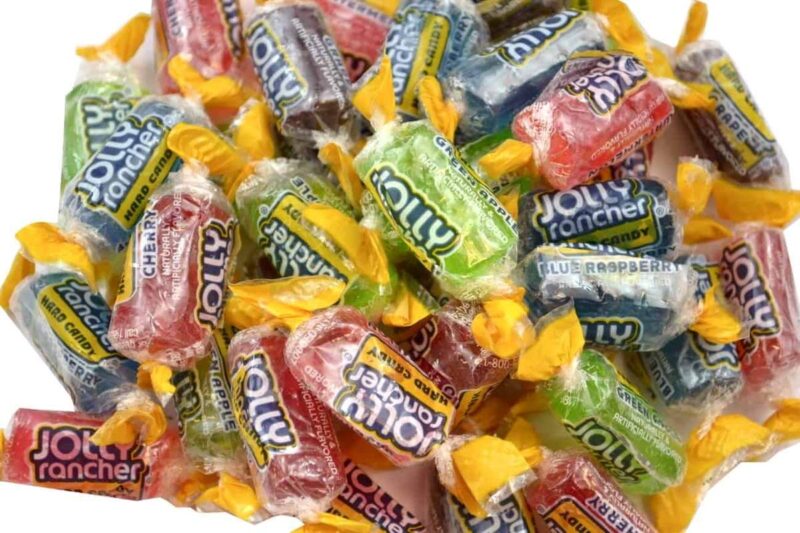
Jolly Ranchers, the popular candies known for their vibrant colors and fruity flavors, have varying vegan status depending on the specific product. It’s important for vegans to carefully consider the ingredients used in Jolly Rancher production to determine if they align with their dietary preferences. Here is an overview of the vegan-friendliness of Jolly Ranchers and some potential concerns to be aware of.
Jolly Rancher Product Ingredients
As mentioned earlier, Jolly Rancher products encompass a range of candies, including hard candies, lollipops, gummies, bites, chews, and jelly beans. The ingredients used in these products can vary and may impact their vegan status. While some variants are typically vegan-friendly, others may raise concerns due to the potential use of bone char filtration or the presence of palm oil. It’s essential to read the ingredient labels of each specific product to determine its vegan-friendliness.
| Product | Vegan-Friendly? |
|---|---|
| Hard Candies | No |
| Lollipops | Yes |
| Gummies | Yes |
| Bites | Yes |
| Chews | No |
| Jelly Beans | Yes |
It’s important to note that the information provided is general, and specific formulations or regional variations may exist. Always check the ingredient labels of Jolly Rancher products before making a purchase, as manufacturers may alter their recipes over time.
While certain Jolly Rancher products, like lollipops, gummies, bites, and jelly beans, do not contain obvious animal-derived ingredients and can be enjoyed by vegans, it’s crucial to consider individual preferences and principles. Some vegans may choose to avoid Jolly Ranchers altogether due to concerns about sugar processing or the use of palm oil. Making informed choices based on personal values and dietary preferences is key when determining if Jolly Ranchers are suitable for a vegan lifestyle.
Decoding the Ingredients of Jolly Rancher Products
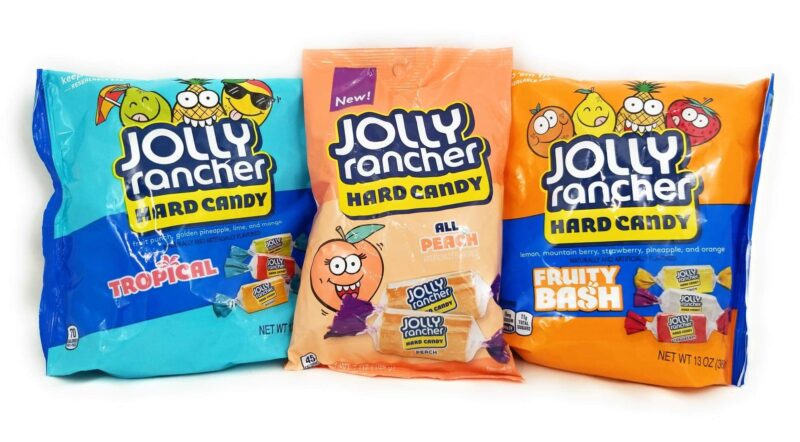
When it comes to determining the vegan status of Jolly Rancher products, it’s essential to carefully decipher the ingredients listed on each specific product. Different variants, including hard candies, lollipops, gummies, bites, chews, and jelly beans, may contain varying ingredients that can impact their vegan-friendly nature.
Table 1 provides a breakdown of the ingredients commonly found in Jolly Rancher products, indicating which ones may raise concerns for vegans. It’s important to note that while some variants, like Jolly Rancher lollipops, gummies, bites, and jelly beans, are typically considered vegan-friendly, others, like Jolly Rancher hard candies and chews, may contain ingredients that vegans may wish to avoid.
It’s crucial for vegans to read ingredient labels thoroughly to make informed decisions about whether or not Jolly Ranchers align with their dietary preferences. While some vegans may be content with enjoying certain Jolly Rancher products that are free from obvious animal-derived ingredients, others may have concerns about the potential use of bone char in sugar processing or the presence of palm oil. Individual principles and preferences should guide these choices.
| Product | Ingredients | Vegan-Friendly? |
|---|---|---|
| Jolly Rancher Hard Candies | Sugar, corn syrup, malic acid, natural and artificial flavors, artificial colors (may include Red 40, Blue 1, Yellow 5, Yellow 6) | No (potential use of bone char in sugar processing) |
| Jolly Rancher Lollipops | Sugar, corn syrup, malic acid, natural and artificial flavors, artificial colors (may include Red 40, Blue 1, Yellow 5, Yellow 6) | Yes |
| Jolly Rancher Gummies | Corn syrup, sugar, gelatin, citric acid, malic acid, natural and artificial flavors, mineral oil, carnauba wax, artificial colors (may include Red 40, Yellow 5, Blue 1) | Yes |
| Jolly Rancher Bites | Sugar, corn syrup, malic acid, palm oil, natural and artificial flavors, artificial colors (may include Red 40, Blue 1, Yellow 5, Yellow 6) | Yes |
| Jolly Rancher Chews | Corn syrup, sugar, palm oil, whey protein concentrate, malic acid, citric acid, natural and artificial flavor, soy lecithin, artificial colors (may include Red 40, Blue 1, Yellow 5, Yellow 6) | No (contains whey protein concentrate) |
| Jolly Rancher Jelly Beans | Sugar, corn syrup, modified cornstarch, contains 2% or less of malic acid, natural and artificial flavors, sodium citrate, artificial colors (may include Red 40, Blue 1, Yellow 5, Yellow 6) | Yes |
Can Vegans Enjoy Jolly Ranchers?
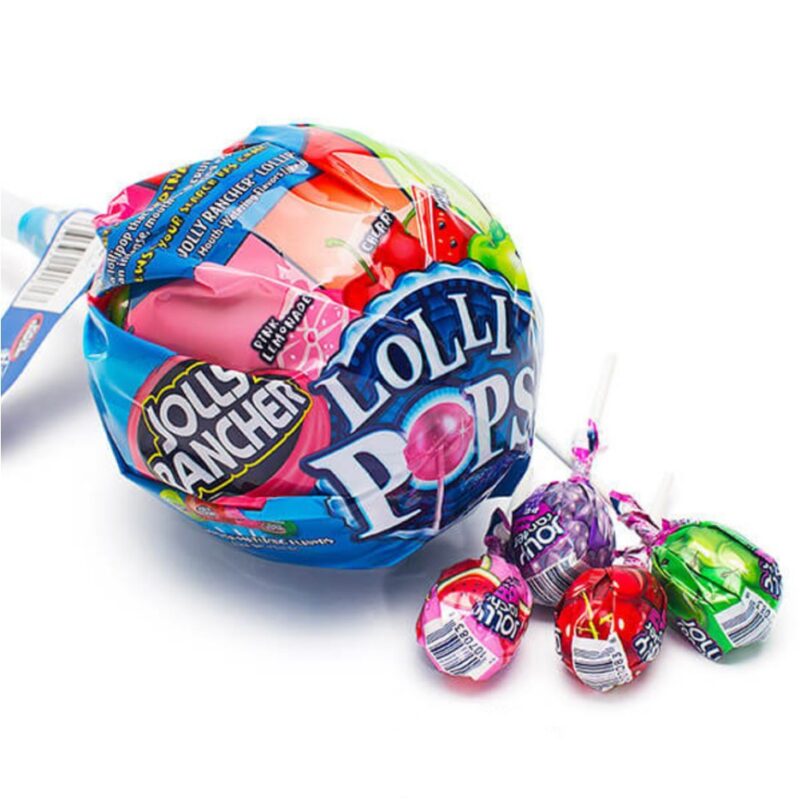
When it comes to determining whether Jolly Ranchers are vegan-friendly, the answer is not straightforward. Different Jolly Rancher products contain various ingredients that determine their suitability for a vegan lifestyle. While some options like gummies, lollipops, and jelly beans do not contain any obvious animal-derived ingredients, there are two potential concerns that may impact a vegan’s decision.
The first concern is the use of bone char in sugar processing. While it’s not clear if bone char is used in the production of Jolly Ranchers, sugar is one of the main ingredients in these candies. Some sugar manufacturers use bone char as a decolorizing agent, which raises ethical concerns for vegans. However, without specific information about the sugar used in Jolly Ranchers, it’s challenging to determine if bone char was involved in their production.
The second concern is the use of palm oil. While palm oil itself is vegan, its production often involves deforestation and harm to wildlife habitats. This creates a dilemma for some vegans, as they prefer to avoid products that contribute to environmental destruction. Again, specific information about the palm oil sourcing and sustainability practices of Jolly Ranchers is not readily available.
Ultimately, the decision of whether to enjoy Jolly Ranchers as a vegan comes down to personal principles and preferences. Vegans who prioritize avoiding potential bone char or unsustainable palm oil may choose to steer clear of Jolly Ranchers. On the other hand, vegans who prioritize ingredient transparency and the absence of obvious animal-derived ingredients may find certain Jolly Rancher products align with their dietary choices. It’s crucial for vegans to read ingredient labels and make informed decisions based on their individual values.
Conclusion
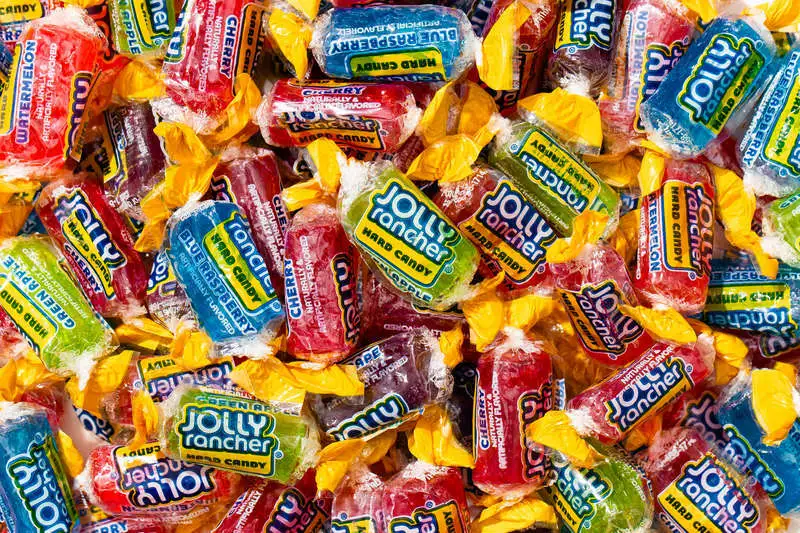
After exploring the vegan status of cornstarch and Jolly Ranchers, it becomes evident that making informed choices aligns with the principles and preferences of vegans. While cornstarch itself is derived from plants, the potential use of bone char in sugar refining and the presence of palm oil in some variants may raise concerns for those following a vegan lifestyle.
Similarly, Jolly Rancher products have varying vegan status depending on the specific ingredients used. While some variants like gummies, lollipops, and jelly beans do not contain any obvious animal-derived ingredients, the potential use of bone char or palm oil in other products may be of concern.
For vegans, carefully reading ingredient labels is crucial to ensure compliance with their dietary choices. By doing so, they can make educated decisions about whether cornstarch or specific Jolly Rancher products are vegan-friendly and align with their individual values.
FAQ
Is cornstarch vegan?
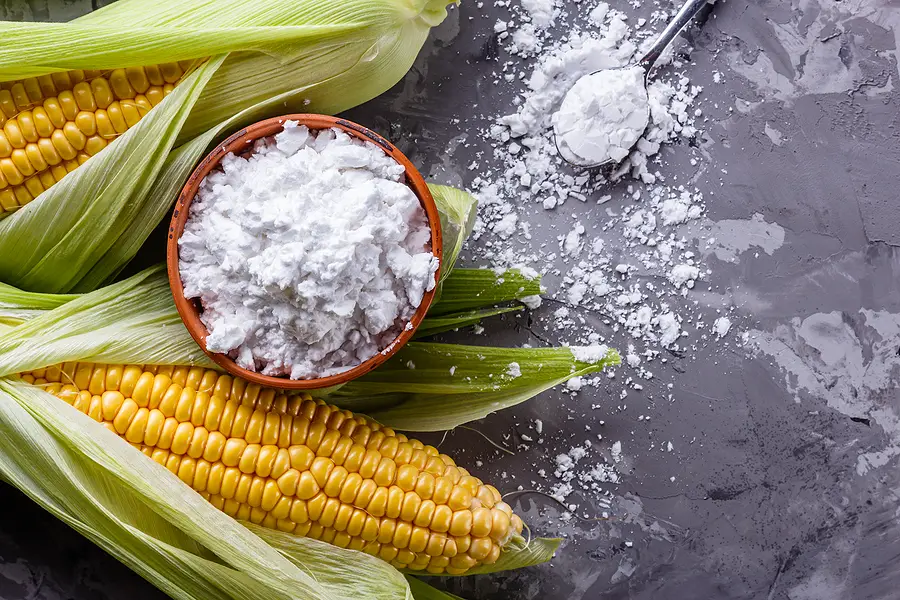
While cornstarch itself is derived from plants, certain factors surrounding its production and use may raise questions about its vegan status.
What is cornstarch?
Cornstarch is a white, chalky powder made from the endosperm of corn kernels. It is primarily used as a thickening agent in various dishes.
What are vegan-friendly alternatives to cornstarch?
Vegan alternatives to cornstarch include all-purpose flour, rice flour, arrowroot powder, potato starch, and tapioca starch.
What are some creative uses for cornstarch?
Cornstarch can be used as an egg substitute in baking, added to omelets for a fluffy texture, used as a coating for vegan “breading,” and even used to reduce friction on ropes or shoelaces.
Are Jolly Ranchers vegan?
The vegan status of Jolly Ranchers depends on the specific product, as certain ingredients like sugar and palm oil may raise concerns for vegans.
What are the ingredients of Jolly Rancher products?
Jolly Rancher products, such as hard candies, lollipops, gummies, bites, chews, and jelly beans, contain different ingredients with regards to their vegan status.
Can vegans enjoy Jolly Ranchers?
Some Jolly Rancher products, like gummies, lollipops, and jelly beans, do not contain any obvious animal-derived ingredients and can be enjoyed by vegans. However, individual preferences and principles should be considered.

